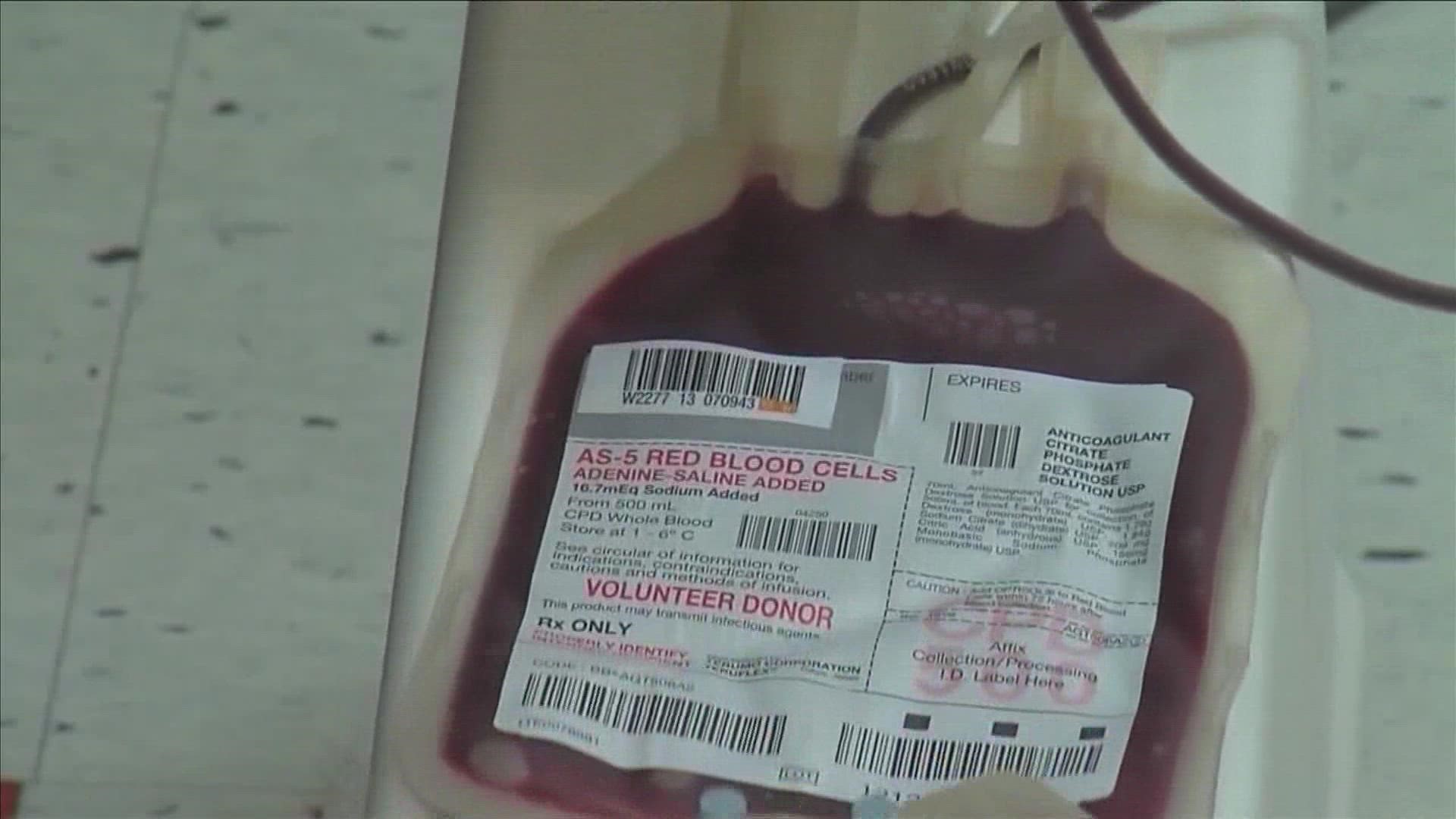MEMPHIS, Tenn. — As we continue to face a shortage of blood donations, there's one population hoping to be able to give blood more frequently.
That includes right here in Memphis. While many may feel the urge to donate, there are some who get denied.
It's one of the most selfless actions, but generosity can get denied.
“For a man who has sex with men when they present to donate blood, if they have been active within the last three months, they are asked…They are deferred from donating,” said Catherine Sullivan, Vitalant Epidemiology Research Associate.
It's a policy that has changed over the years. At first, men who had sex with men could not donate at all. Then, they could not donate if they had sex within 12 months. Now, it's three months.
Sullivan is part of the team at Vitalant working to change that policy.
“What the Advance Study is investigating is alternatives to the current three-month deferral for gay and bi-sexual men. What we’re looking into particularly is an individual risk-based assessment,” said Sullivan.
The FDA designed and funded the Advance Study. The goal is to change the three-month policy to an extensive questionnaire.
“Blood centers around the US recognize it can be hurtful if someone presents to donate and is turned away,” said Sullivan.
The efforts for change come as we learn more about diseases such as HIV. In a recent study, researchers found that HIV infections can have more harmful effects in heterosexual individuals.
“When you get HIV infection … T-4 cells, they are the orchestra conductors of the immune system. If you take away those cells, the rest of the immune system continues to function. But it sounds more like an orchestra without a conductor,” said Dr. Steve Threlkeld, Baptist Memorial Hospital Infectious Disease Specialist. “Therefore, you get other kinds of infections that normal people might not get.”
With HIV, your T cells can go down and somewhat bounce back, but the new study’s findings give more insight.
“Turns out, among people who have a transmitted heterosexually, those counts go lower and stay lower seemingly afterwards. men who have sex with men seem to have viruses that don't cause as much immune damage,” said Dr. Threlkeld. While this helps our understanding of the virus, more research will most likely be conducted and may not impact current policies for blood donations.
“Those issues have a lot of baggage, some of them are medical, some of them are sociological, some, frankly, are political, there a lot of things that go into those sorts of decisions,” said Threlkeld.
While all blood is carefully screened, the fight for men who have sex with men to donate continues.
Advance Study has received a lot of interests; however, they still need more people. Their goal is to reach 2,000 participants and wrap up the enrollment portion of the project by September.

